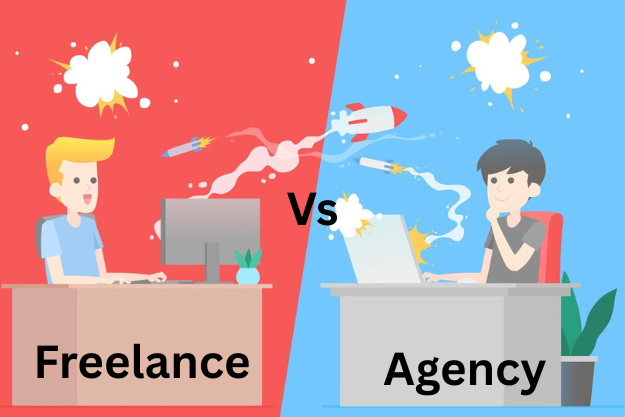Freelancing, on the other hand, suits those seeking flexibility and solo work; meanwhile, agencies cater to team players who thrive with routine and office structure. Ultimately, your choice between these paths depends on whether you value autonomy or collaboration in your digital marketing career path.
Freelancing vs Agency Work: Which Digital Marketing Path Is Right for You?

Freelancing or agency? This is a basic question laying down the foundation of your digital marketing career in this rapidly growing field of digital marketing. Each path comes with its own advantages and disadvantages. It further determines how you earn funds, how you will work, your growth, and even how you will live. The article discusses both options and helps you determine which best fits your long-term objectives.
Understanding the Basics
Before taking a decision, make sure you know what each path promises. Freelancers generally work independently. They provide services such as SEO, content writing, or social media marketing. An agency is structured word-of-mouth marketing. The agency hires several marketers to work with various clients. Each environment provides a different concept of career building.
World of Freelancer

Freelancing gives you the freedom to be your own boss. It offers both flexibility and creative space. You can work from home. You pick your projects, clients, and even your hours. It is flexible and creative freedom. You can work from home or travel while doing it. But freelancing is unstable and uncertain. You have to take care of your taxes and other business stuff.
Advantages of Freelancing in Digital Marketing
Create your own timetable.
Choose your client.
Work from Anywhere
Charge per project or hourly.
Expand your personal brand.
Freelancers enjoy freedom and creative control. Many start freelancing part-time. It lets them test the waters. Others turn it into a full-time business. The digital marketing world supports this shift.
Challenges Facing Freelancers
Freelancers, besides confronting the need to generate funds, need to find clients themselves, mostly having to take unpaid leaves, and with no health insurance-need to show sufficient discipline in meeting deadlines, as self-motivation is the key to prosperity.
Required Skills to Ensure One's Success in Freelancing
For one to thrive as a freelancer, he or she must need skills, and marketing knowledge will not be sufficient. Communication, time management, and negotiation are important. The freelance business could be more secure with the use of some basic skills in finance.
Agency Work in Digital Marketing

Agency life entails a certain amount of structure. You are part of a team. Agencies have structure, job security, and fixed working hours. You deal with multiple clients. The work is more organized and regular.
Perks of Agency Life
Advantages of Agency Life
Monthly salary stabilization
Nurturing and training
Working together with a team to achieve organizational goals
Tools and resources
Paths within the career to advancement
Drawbacks of Working in an Agency
Agencies come with long hours. You have less control over projects. You may end up working on accounts that you don’t like. It may have limited creative freedom. Burnout creeps in at such fast-paced agencies.
Skills You Acquire from an Agency
Agencies help you create soft skills while developing hard skills. learn to work under pressure. You are more adept at multitasking and client communication. You improve problem-solving skills as well. All these help you in your marketing career.
Work-Life Balance: Freelancing vs Agency
Freelancing is flexible. But there is a tendency to intermingle. Extended working hours sum up to the personnel time. They are very disciplined concerning timings at an agency, unless otherwise asked to work extra hours. One must choose what suits their lifestyle better.
Earning Potential: Who Makes More?

Freelancers have the potential to earn more with lucrative clients, but it usually takes a long time to reach such a level. For agencies, you are guaranteed a steady salary, and raises or promotions depend on your performance and, thus, available opportunities in the agency. Although much less risky, it also comes at a price of lesser control.
Relationship with the Client
In freelancing, you develop relationships directly with your clients, which in turn creates stronger bonds of trust, reduces barriers to communication, and increases the probability of securing repeat work. You become the face of your brand and handle clients directly, which is good for building credibility over the long term. Agency work has account managers serving as intermediaries between you and the client. Depending on the specific structure of the agency, you will focus on the execution side of things and not much on relationship-building.
The degree to which you are able to have an open interaction will determine which role suits you best on the digital marketing spectrum. If you enjoy client-facing roles and managing the entire process, freelancing may be a better route. If you feel comfortable working with a well-structured team and prefer to focus on your creative skills or analytical skills, then agency life could be for you.
Job Security Comparison

The agencies tend to provide more job security compared to freelancing. They provide employee benefits such as health insurance and paid holidays, together with employment continuity through a well-defined contractual structure. For many, stability helps in visualizing their digital marketing career as steady and happy. In contrast, freelancers are subject to the ebb and flow of projects and client engagements. Work could be fun in one month and dead slow for another month. With no safety net, the unpredictability can become unbearable if you are not financially prepared.
Freelancing, besides expertise, requires good networking and selling skills to attract and maintain a steady stream of clients. It is a continuous grind: an arduous process to sell yourself, pitching services; keeping an active presence online is the sustenance of success. If agencies guarantee comfort, freelancing demands the willpower to pull through tough times. It will then depend on how much security or freedom you want in your digital marketing career path.
Freedom and Flexibility
As a general rule, freelancers enjoy much more control over their time. They decide when to work, where to work, and how many hours of work to spend each day. This flexibility is one of the most prominent advantages of the freelance digital marketing career path. It gives freelancers a fair work-life balance, and in some cases, a chance to travel while they are working. Conversely, agencies can provide some structure and stability but very little freedom. Schedule-wise, it is usually the management or the needs of the clients that determine your time.
You could very well be working from 9 to 5 with commitments to meetings and deadlines imposed by others. Thus, it all comes down to the level of freedom one wants in the digital marketing career path.
Creativity and Innovation

It really can be said that freelance creativity is freer. The freelancer is free to play around and express oneself without being bogged down by too many restrictions. As a freelancer pursuing the digital marketing career path, you’ll have a chance to create new ideas that would test new strategies or tools to create unique campaigns. With this freedom of creativity, you could innovate every time you want. On the contrary, most agencies stress the adherence to established brand guidelines and standards, thus limiting a lot of freedom that the freelancers really would enjoy. Yet, working with agencies would be really fortunate because it opens room for working on huge campaigns where massive professional experience is acquired.
If you want to experience multi-channel campaigns in-depth and yet work with different big brands, probably the agency route would be your best choice in the long run within your digital marketing career path.
Freelancing Tools vs. Agency Resources
Agencies often have budgets allowing them to subscribe to premium platforms-think Adobe Creative Cloud, SEMrush, or HubSpot. Then they can train teams on the latest features and innovations. Freelancers don’t have that luxury; they survive on free or less expensive tools-such as Canva, Ubersuggest, and basic Google Analytics. Difference in the polish of deliverables can make a difference, but smart freelance workers turn this into an advantage. They learn everything there is to know about their particular set of tools and take advantage of freemium upgrades to end up putting out quality work without going broke. To know more about Google Analytics you can read https://www.techtarget.com/
Career Growth in the Digital Marketing Career Path
When speaking about a well-defined career path in the area of digital marketing, one will have to start with the agencies. Agencies have very well-defined career paths in the area of digital marketing. So if you take one path, you would start with an entry-level position like a junior strategist or coordinator, proceed after perhaps two years into mid-level roles such as account manager and campaign lead, and finish four to five years later as a director or VP of digital marketing. With every promotion, extra responsibilities and higher salaries come new doors for specialized training. Agencies generally will offer mentorship, formal performance appraisals, and even a budget for certifications that can allow you to check off certain milestones along your career path.
Networking Opportunities

Freelancers must go to networking events and market their brands, which comprise key activities like joining and participating in industry-focused forums or local meetups with the intention of being able to build networks that may include potential clients and co-officials with whom they work, as well as those whose services or guidance they might like to have in the future. Networking, in fact, in freelancing means securing gigs while establishing long-term relationships and steadily growing one’s reputation in the digital marketing space.
A freelancer without a strong network will hardly find any work, especially during lean months. Courses like LinkedIn and Twitter will show one how valuable networking can be in maximizing the outreach of one’s profile because someone is able to follow developments in her field, too.
Which One Is Better for Beginners?
Agencies are very good for learning with mentor guidance and work assigned. Freelancers have to self-learn everything. That is why most of the beginners join agencies—to gain experience.
Possibilities in Personal Branding
Freelancers put their personal branding with the use of LinkedIn, Instagram, and blogs. Unlike an agency that grows its own brand, you can showcase work experience.
Freedom in Choosing Projects
A freelancer says no to the projects; it is not that way in agencies, as you are bound to work on assigned accounts. Freelancers switch niches quicker too.
Taxes and Legal Issues
Freelancers do taxes and invoices. Financial basics are to be learned. In agencies, they deduct taxes and give payslips. It makes financial control very simple for employees.
Which One Is Better for Learning?
Agencies offer their form of structured learning through the guidance of mentors or formal training and real assignments of tasks. They also provide feedback loops and resources that enable one to develop specialty skills quite fast. Then, there is the exposure to different projects under expert supervision that speeds up the process. By contrast, freelance workers are wholly dependent on learning all aspects of their work from online courses, from mistakes, or from their research. Thus, agencies seem to promise the earlier-stage types of work. In fact, many begin the journey of digital marketing by being present in agencies to gain an entry-level of knowledge from the very beginning for an initial build-up of some professional confidence. Later on, it becomes possible to go freelancing, armed with a good portfolio and skill set.
Lifestyle Fit: Which Suits You?

The Future of Both Models
As remote work continues to rise, freelancing is growing rapidly, offering greater flexibility. However, agencies are now embracing hybrid roles, blending in-office and remote work for a balanced approach. Both freelancing and agency models are continuously evolving. Ultimately, choosing the right path depends on your long-term career goals and the work environment that suits you best.
How to Transition Between the Two
Most digital marketers begin their careers in agencies, as agencies always have the best reference backgrounds, and the structure is a very nice environment for mentoring. Then they can make a transition to freelancing when they would like to go independent or maybe go back to a stable job now and again. Skills gained include client communication or campaign execution skills, and all are transferable. So always keep your portfolio updated, show a variety of projects, and keep a flexible approach to your digital marketing career path with your changing goals.
Explore further by enrolling in our digital marketing courses at GICT Training Institute and start building your future today!”
Conclusion
In the end, it is your personal goals that determine whether you will choose freelance work or agency work to engage in a digital-marketing career. Freelance work is flexible, independent, and creative, although it requires a degree of self-discipline and networking skills, and income can be irregular. Agency work, on the other hand, brings with it such nice palliatives as stability, mentoring, and sophisticated tools; it sacrifices independence to some extent. There are growth opportunities on both sides. If you really have to choose, think about what it is you enjoy more—independence versus structure—and let your decision match your personal long-term career goals. Each has a unique edge in his promise to the digital marketing paths.



